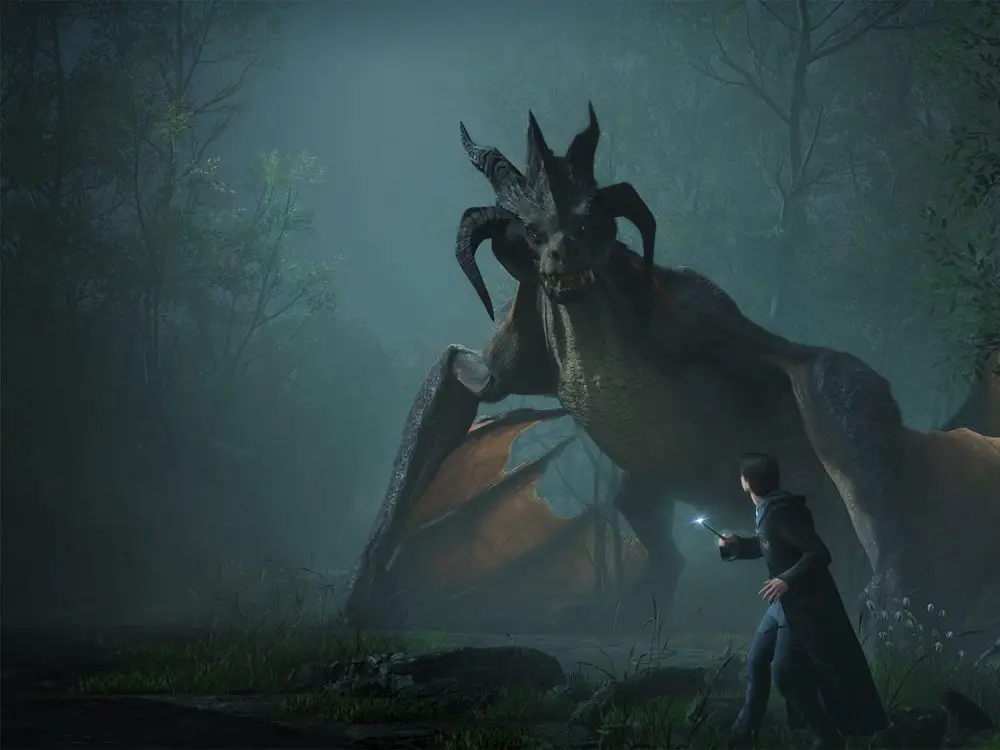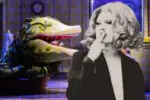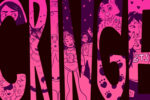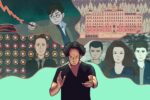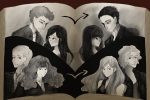In the aftermath of Warner Bros. and Avalanche Software’s announcement that the “Harry Potter” video game Hogwarts Legacy would be delayed until 2022, backlash against J.K. Rowling and her transphobia is again shrouding the news. This is mostly due to the game developer’s decision to make the game more transgender-inclusive by allowing the gamer to separate body and voice from the two different gender options during character creation.
Many of those in the “Harry Potter” fan community have noted the superficiality of this gesture, describing it as “nice” but “meaningless.” J.K. Rowling’s consistent commitment to transphobia has deeply affected the trans community and its allies, forcing the perception of her, her books and the art stemming from her works to be forever marred with bigotry.
However, it’s not easy to let go of the “Harry Potter” franchise, which has transformed children’s fantasy novels and become a symbol of comfort for millions. Therefore, as discussion about Rowling becomes popular once again, the age-old question on whether one can truly separate art from the artist is reignited. Can one enjoy Hogwarts Legacy and divorce themselves from the creator’s transphobia?
J.K. Rowling’s Transphobia
Accusations of Rowling being a transphobe and a TERF (trans-exclusionary radical feminist) have been circling around the media since December 2019, after she tweeted support for Maya Forstater, a researcher who had recently lost a court case against her former employer, the Center for Global Development.
The inequality think tank dismissed Forstater after she used discriminatory language to legitimize her opposition to the U.K. Gender Recognition Act, a bill that would allow people to self-identify their gender without having to undergo medical treatment. Rowling tweeted support for Forstater on Dec. 19, 2019.
Dress however you please.
Call yourself whatever you like.
Sleep with any consenting adult who’ll have you.
Live your best life in peace and security.
But force women out of their jobs for stating that sex is real? #IStandWithMaya #ThisIsNotADrill— J.K. Rowling (@jk_rowling) December 19, 2019
Rowling has continued to double-down on her position by writing essays and tweets implying that she does not see trans women as “real women,” and that the safety of trans women and cis women is inversely related. She tweeted in June 2020:
If sex isn’t real, there’s no same-sex attraction. If sex isn’t real, the lived reality of women globally is erased. I know and love trans people, but erasing the concept of sex removes the ability of many to meaningfully discuss their lives. It isn’t hate to speak the truth.
— J.K. Rowling (@jk_rowling) June 6, 2020
Implying that one’s experiences as a woman would be “erased” if one acknowledged that trans women are just as “real” as cisgender women, and even face heightened levels of structural violence, is to embody the main idea of the violent TERF phenomenon.
Those who subscribe to the ideas of trans-exclusionary radical feminism often project their transphobia upon trans women, believing that they are able to tap into the privilege of cis men, and that cis women are actually the most vulnerable minority in society. All evidence points to the contrary, as statistically, trans women, in particular black trans women, become victims of sexual assault, harassment and hate crimes at disproportionately higher rates than cis women, especially cis white women.
Naturally, the backlash against Rowling has been severe, with “Harry Potter” cast members and fans boldly speaking out against her. Daniel Radcliffe, Emma Watson, Bonnie Wright, Rupert Grint and Eddie Redmayne have all expressed their disapproval and made it clear that they believe that trans women are indeed real women. Some fans have sworn to never read another “Harry Potter” book again, while others have stated that they will continue to read the books and enjoy the films, but they will distance themselves from Rowling by focusing their support on fan-made creations.
The Myth of Separating Art From the Artist
After explaining the immense amount of bigotry behind Rowling’s tweets and statements, is it possible to divorce oneself from it and simply enjoy “Harry Potter” as a children’s fantasy?
Unfortunately, the answer is simply, no. Art is nothing but a physical expression of one’s thoughts, values, beliefs and perspectives. Divorcing the artist from their own art would be futile and would be ignorantly surrendering to the false belief that artists include none of their own values in their work.
One of my favorite authors, Sylvia Plath, had enough racist moments in her famous book, “The Bell Jar,” that I was sure it was not made to be read by an Indian woman like myself. However, I cannot say I was not deeply enamored with the way she described her battle with depression with such raw honesty.
Am I wrong for enjoying “The Bell Jar” despite knowing that the author filled the book with racist undertones and even explicit racist moments? I do not believe so.
Enjoying flawed art from flawed artists is not wrong, but ignoring the flaws of the art and artist is. I can enjoy reading Sylvia Plath without making excuses for her racism and acknowledging that she was indeed a racist who was able to make good art.
One can still enjoy their previously purchased “Harry Potter” books, wands, T-shirts, etc., while acknowledging that J.K. Rowling is a transphobe.
One must also acknowledge that her other bigoted views are present in the “Harry Potter” series, including anti-Semitism and anti-Asian racism, which is evident in both the goblins who are coded with anti-Semitic stereotypes and Rowling naming the only East Asian character in the book Cho Chang, a stereotypical name that is, moreover, inaccurate — Cho and Chang are both surnames.
It is also worth mentioning that the only Irish character in the novel, Seamus Finnegan, has a tendency to create explosions, evoking stereotypes that associate the Irish with the Irish Republican Army, doubly problematic since the English Rowling wrote “Harry Potter” during the Troubles.
However, enjoying your previously purchased “Harry Potter” memorabilia is not equivalent to actively funneling money into her pockets by purchasing anything Rowling may directly profit from, which includes this video game.
While Hogwarts Legacy has taken steps to distance itself from Rowling’s transphobia, Rowling will likely profit from this game, either from royalties or a one-time direct payment.
Individual accountability for dead people such as Sylvia Plath does not exist, and I can buy her books and art knowing that she will never see the profit. However, Rowling will see the financial benefit of the release of this video game.
Accountability for the living must occur, and it must include financial boycotts. Financial boycotting often forces the influencer into taking responsibility for their actions. The influencer either retracts their bigoted statements in fear of losing money, or the boycott will force them and their platform to fade into oblivion due to the lack of funding.
Enjoying the “Harry Potter” series does not mean we can simply allow J.K. Rowling to prey upon highly vulnerable and marginalized communities, as allowing bigots to control our entertainment unchecked can result in grave consequences. Systemic, structural violence can often be seen in the most popular forms of entertainment. Fearmongering her audience about trans people will only contribute to society’s view that trans people are inherently dangerous, which could directly cause them great physical harm.
If we do not try to cut Rowling’s platform and financially boycott any work that she may profit from, such as this video game, we will be giving the green signal for more artists to influence young audiences with their transphobic views.
I want to end this article by giving my condolences to the trans and nonbinary “Harry Potter” fans who had previously found a safe place in a world filled with unconventional wizards and witches fighting against discrimination and prejudice, who have now watched their magical safe place crumble due to the violent words of J.K. Rowling.


